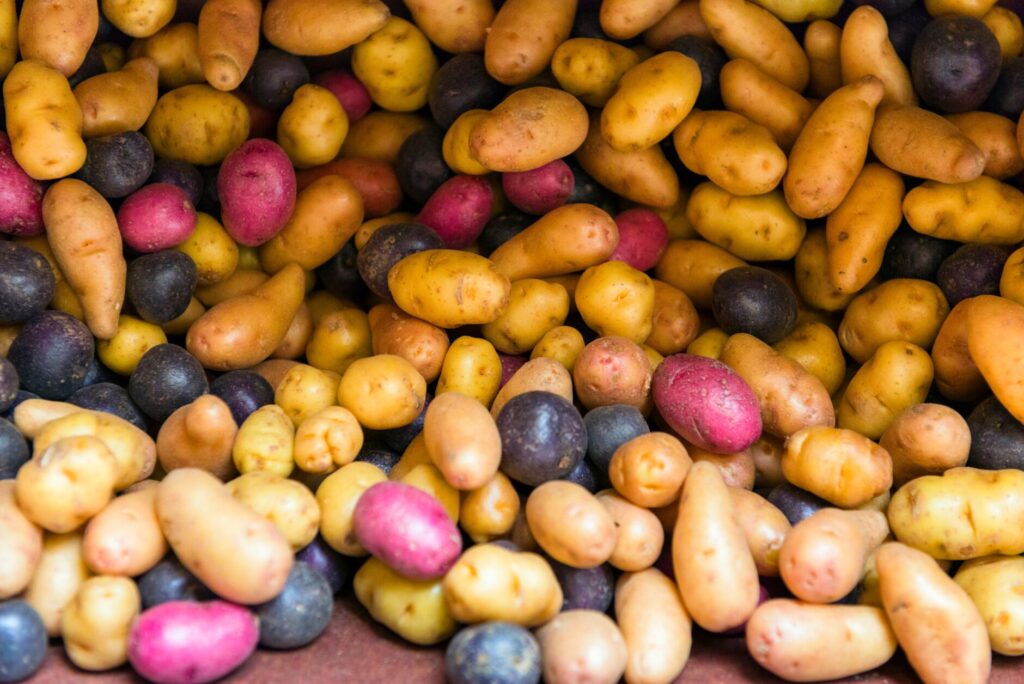Tuber Protein: ReaGenics Creates Potatoes with 31% Protein via Plant Cell Culture
3 Mins Read
Israeli startup ReaGenics has developed a cell-based potato with 31% protein content, which could rise even higher.
As first reported by AgFunderNews, ReaGenics, an Israeli biotech startup leveraging cellular tissue culturing to grow plant molecules in bioreactors, has created high-protein potatoes that have significant advantages over soy or pea.
According to AgFunderNews’s reporting, while potatoes typically contain just 2% of native protein and aren’t what comes to mind when you think of a protein crop, ReaGenics has used cellular agriculture to develop spuds with 31% protein content. This could potentially rise to 40% and open up new markets for the company.
“Not all potato varieties can be made into tissue culture,” co-founder and chairman Michael Kagan told AgFunderNews. “But we managed to do it with a select few, and when we optimised conditions for the cells to grow, we discovered that the concentration of the proteins in the cells is far higher.”

A functionally efficient, high-protein spud
While it has been around for decades, plant cell culture is still a burgeoning segment of the smart protein space, and is among a number of technologies “key to tackling the problem of recreating dairy proteins and other ingredients on a mass scale”, according to Albrecht Wolfmeyer, director of ProVeg Incubator.
These startups don’t use regular agricultural inputs like water or soil, instead growing plant cells in bioreactors, which are fed sugar, vitamins, minerals, etc. It allows companies to eschew the huge amount of resources needed to grow plants, and ensure a consistent supply resilient to climate change and other industry issues.
Kagan told AgFunderNews that cell-based potatoes enable a significant increase in protein production. “At the moment, the main market is for animal feed, although the protein is very close to animal proteins such as egg and casein when it comes to nutrition and functionality,” he explained. Kagan also hopes the potato protein could help provide a solution to acute malnutrition, a condition that affects over 45 million children under the age of five globally.
Meat and potatoes (sort of)

ReaGenics is among several startups revolutionising the potato protein market, which is set to grow annually by 7%. Avebe, Tereos, Roquette and Branston are all working in this space. Fellow Israeli company PoLoPo, meanwhile, is using molecular farming to increase the native protein content in potatoes (much like ReaGenics), as well as produce the main protein found in chicken eggs. South Korea’s E Green Global is similarly producing egg proteins in potatoes via plant cell culture.
As AgFunderNews reports, ReaGenics is currently not building “massive production facilities” for its potato protein in-house, having tested its continuous production process in its own bioreactor platforms, with a capacity between 4,000 and 10,000 litres.
ReaGenics told AgFunderNews it is also working on other ingredients developed via plant cell culture, such as cannabinoids, resveratrol (a natural polyphenol found in grapes), anthocyanins from purple maize, and coffee. Parisian startup Stem is also using the same tech to make the latter, as is Israeli’s Pluri.
Also in Israel, Kokomodo is producing chocolate from plant cell culture. This is a space populated by California Cultured, Fazer, and Celleste Bio as well.
This story was updated to better reflect AgFunderNews’s original reporting.



